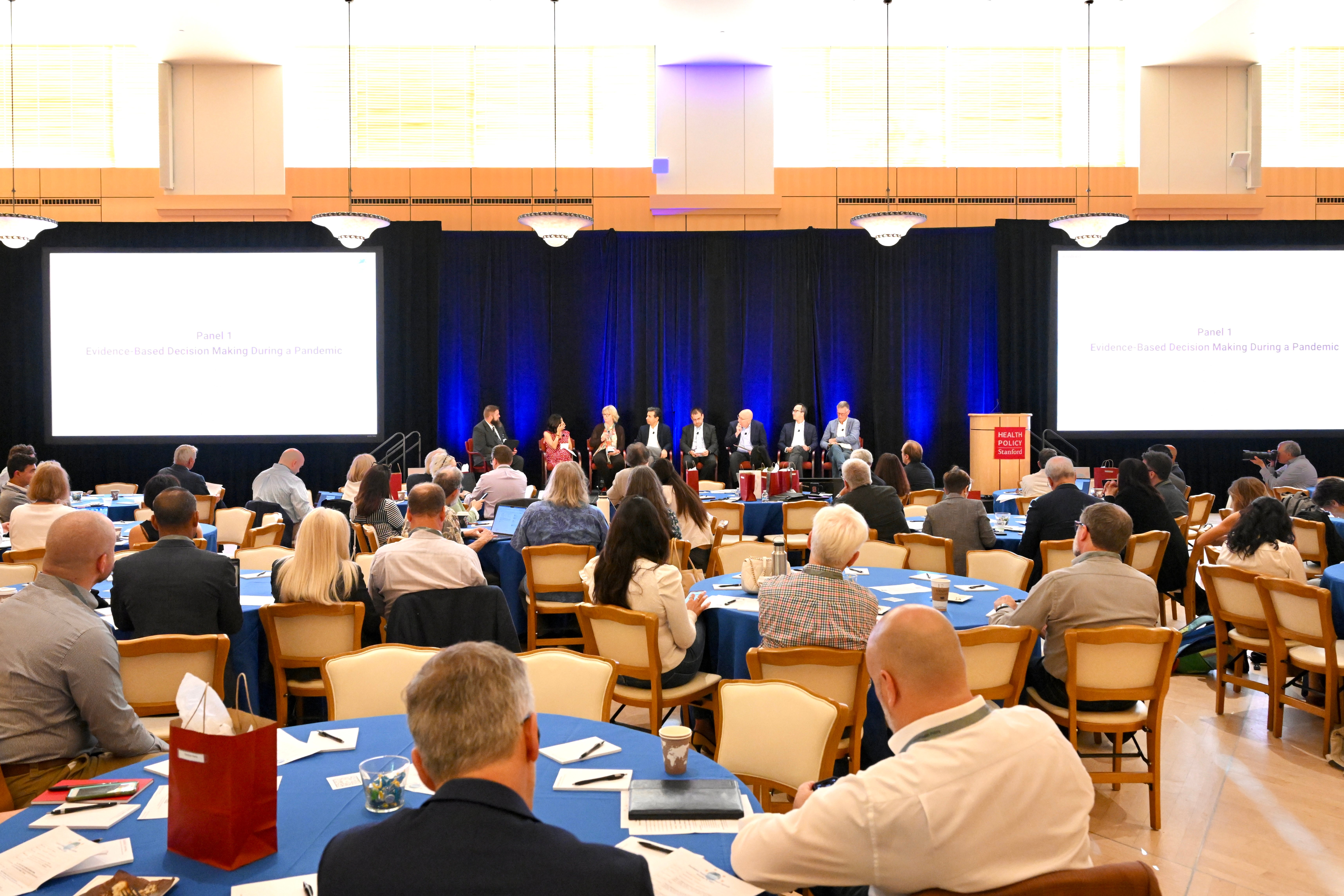President-elect Donald Trump has selected Stanford medicine professor Jayanta “Jay” Bhattacharya MD ’97, Ph.D. ’00 to head the National Institutes of Health (NIH), the U.S. agency responsible for public health research.
“Dr. Bhattacharya will work in cooperation with Robert F. Kennedy Jr. to direct the Nation’s Medical Research, and to make important discoveries that will improve Health, and save lives,” Trump said in a statement announcing the selection Tuesday.
Following Bhattacharya’s presidential appointment, he will undergo a Senate confirmation process which includes a committee process and Senate hearing and vote before he can officially step into the role.
During the COVID-19 pandemic, Bhattacharya came under fire for his support of “herd immunity,” or mass-infection in order to achieve an immune population, which he released in a co-authored document. He also headed a Stanford-affiliated seroprevalence study in 2020 — funded by JetBlue — and suggested a much lower COVID-19 death rate. His study was criticized for questionable methodological choices and mathematical errors.
Bhattacharya did not respond to The Daily’s request for comment.
In October, the University hosted a controversial COVID-19 symposium, for which Bhattacharya self-identified as the “main organizer.”
Mallory Harris Ph.D. ’24 criticized the COVID-19 symposium in an op-ed published by The Daily, writing that academic freedom was “under attack” at Stanford. She wrote that “it is those who will be speaking at this very conference that are most responsible for those attacks.”
Following Bhattacharya’s appointment, Scott Atlas, a colleague who worked on the seroprevalence study and spoke at the symposium, wrote that Bhattacharya was Trump’s “best appointment so far,” in an X post.
“Jay stands for evidence-based, ethical research, transparency [and] the open scientific debate,” Atlas wrote. “If you don’t agree with that, you shouldn’t be anywhere near science.” Atlas is currently censured by the University’s Faculty Senate for spreading misinformation about COVID-19.
Students at the Stanford School of Medicine raised concerns about Bhattacharya’s selection due to his controversial past.
Santiago Sanchez Ph.D. ’25, M.D. ’27, is concerned that as head of the NIH, “he will be vindictive about the way that the institutes are run, and maybe chill certain areas of science or research that would otherwise be productive.”
Bhattacharya previously wrote on X that he will support the “reform of the American scientific and public health institutions after the covid era fiasco” in any role.
Sanchez also calls into question Bhattacharya’s experience. Medical students are confused as to how his expertise can further the goals of the NIH, Sanchez said.
“The NIH has always been headed by a physician scientist, but Jay has, critically, never completed residency training, so he never really did the dedicated clinical aspect of physician training,” Sanchez said. “He is trained as an economist and not as a basic scientist.”
Harris wrote in her op-ed that Bhattacharya has “been an expert witness against COVID countermeasures” and that his actions have been “counterproductive” to promoting scientific discourse.
Another primary concern for Sanchez is the potential impact of Bhattacharya’s “highly ideological nature” as it applies to research. He believes that Bhattacharya is “not motivated by the free pursuit of scientific questions.”
“[He] is antagonistic towards certain areas of research, especially infectious disease and vaccines, which poses a pretty significant danger to the public,” Sanchez said. “I think it’ll stifle American research for some time because people will perceive, either in reality or just by perception, that the United States is no longer a welcome environment for scientists, especially infectious disease and epidemiology.”
Sanchez claimed that Bhattacharya has “spread some conspiracy theories” about the NIH and funding, specifically stating he was “suggesting that they withheld funding from people who did not share conventional views about COVID-19.”
He noted that it is not Bhattacharya’s political affiliation that concerns him. However, he stated that Bhattacharya has “effectively zero expertise.”
“In recent years, he’s really been focused on the post-pandemic fallout, and he hasn’t really been a research group leader. Even in the most minimal respect, he lacks qualifications so that, I think, for the general public, is what they should be most concerned about,” Sanchez said.
The University has not responded to The Daily’s request for comment.
